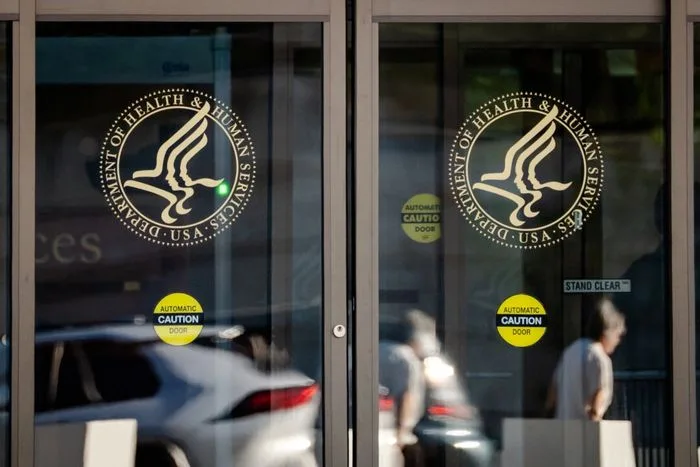
Federal Judge Refuses to Block DOGE Access to Sensitive Government Data
By Tom Ozimek
A federal judge on Friday allowed the Department of Government Efficiency (DOGE) to continue to access sensitive data on millions of Americans at the Departments of Labor and Health and Human Services, rejecting a push by labor unions and privacy advocates to block DOGE’s reach.
In a decision issued on June 27, U.S. District Judge John D. Bates in Washington denied a motion for a preliminary injunction in a lawsuit brought by a coalition that includes the AFL-CIO, the Service Employees International Union, and the Economic Policy Institute. The plaintiffs contended that DOGE lacks statutory authority to tap into confidential government systems that store personal information such as medical records, financial histories, Social Security numbers, and home addresses.
The judge found that while the plaintiffs have shown standing to bring the case, they failed to demonstrate the kind of imminent and irreparable harm necessary to justify halting DOGE’s work at this stage.
“Absent evidence those personnel will imminently misuse or publicly disclose that information, the Court cannot say that irreparable harm will clearly occur before the Court can make a final determination on the merits,” Bates wrote. Still, the judge acknowledged “grave” concerns about DOGE’s access to “extremely sensitive” data.
The judge has already twice denied plaintiffs’ requests for temporary restraining orders to block DOGE’s activities—once on Feb. 7 and again on Feb. 14—with Bates on both occasions expressing concern about DOGE access to sensitive records, but denying the extraordinary relief sought.
The case will now proceed toward further hearings and potentially a final judgment, with the court requesting that both sides propose a schedule for next steps.
DOGE was created under President Donald Trump’s Executive Order 14158 to review federal operations, cut costs, and eliminate waste. Its teams have gained system-level access across multiple agencies as part of what the administration describes as a push to modernize government and root out fraud and inefficiency.
But DOGE’s reach has sparked a series of lawsuits across the federal judiciary. Just last week, a different federal judge ordered the government to produce a detailed report on DOGE’s level of access to personally identifiable information at the Office of Personnel Management, in response to another lawsuit filed by the AFL-CIO.
Meanwhile, earlier this month, the U.S. Supreme Court allowed DOGE’s work at the Social Security Administration to continue, staying a lower court’s preliminary injunction in a decision that drew several dissents.
As legal battles unfold, momentum is building in Congress to codify DOGE’s budget cuts and operational reforms. On June 24, the House Subcommittee on Delivering on Government Efficiency held a hearing titled “Locking in the DOGE Cuts: Ending Waste, Fraud, and Abuse for Good,” where lawmakers highlighted DOGE’s role in saving what officials say is up to $180 billion—or over $1,100 per taxpayer—by identifying inefficiencies across government programs, grants, contracts, and personnel.
“DOGE has attracted enemies because it’s taken on Washington’s culture of spending,” Subcommittee Chairwoman Rep. Marjorie Taylor Greene (R-Ga.) said during the hearing. “We should make that a permanent battle. We should institutionalize the fight against waste, fraud, and abuse in government.”
Testifying at the hearing, witnesses echoed calls to embed DOGE’s work into permanent law. Dan Lips of the Foundation for American Innovation testified that DOGE has already helped reduce regulatory burdens by scrubbing over 1.7 million words from the federal code, while David Burton of The Heritage Foundation cautioned that without congressional action, many DOGE-initiated cuts may never translate into actual budget savings.
Matthew Dickerson, Director of Budget Policy at the Economic Policy Innovation Center, testified that reducing the federal workforce by 10 percent could yield between $559 billion and $608 billion in savings over the next decade.
Lips said that efforts to improve government efficiency “should not be a partisan issue—it’s a fiscal necessity,” urging bipartisan cooperation to lock in DOGE’s reforms.
In the meantime, as legal battles continue, DOGE-affiliated staff retain their access to systems at agencies like the Department of Labor and the Department of Health and Human Services. Although Bates denied emergency relief in the AFL-CIO-led case in Washington, he signaled that the court remains open to ruling against DOGE if future evidence shows misuse of private information or statutory violations.
“This determination rings no death knell to plaintiffs’ ultimate claims,” Bates noted in his ruling. “The Court retains remedial options if plaintiffs prevail on the merits.”


